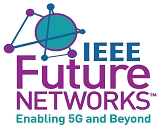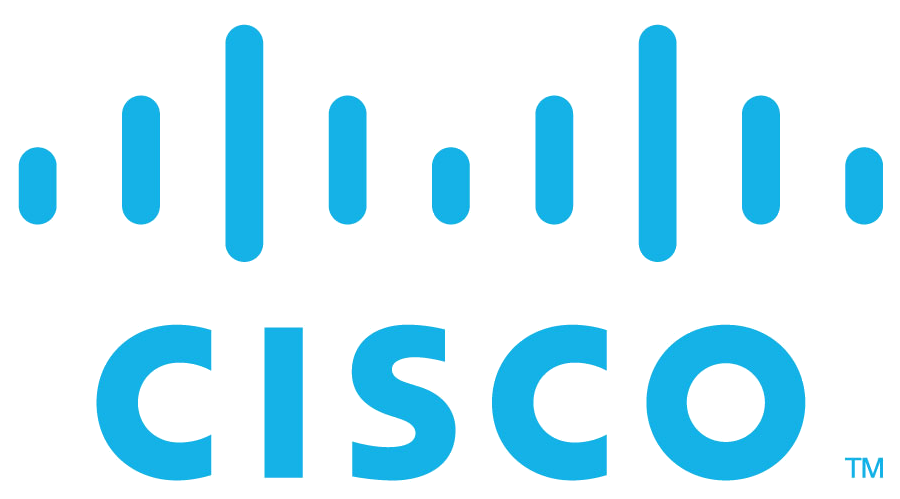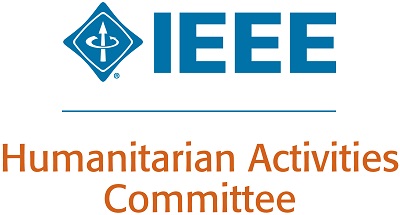Workshop on Machine Intelligence in Networked Data and Systems (MINDS)
Workshop Date: 7th January 2020
The inter-working of machine learning and networking is set to transform and disrupt many areas of business and everyday human life. MINDS (Machine Intelligence in Networked Data and Systems) aims to bring together researchers and practitioners to understand and explain this inter-working. MINDS will discuss and present latest achievements and innovations at the cross-section of machine learning, systems, and networking.
MINDS welcomes original research submissions that define challenges, report experiences, or discuss progress toward design and solutions that integrate machine learning, deep learning, mobile systems, and networked systems in various application areas. These application areas include but are not limited to healthcare, environment, retail, transportation, life sciences etc. Contributions describing techniques applied to real-world problems and interdisciplinary research involving novel networking architectures, system designs, IoT systems, big data systems with machine learning as the core component are especially encouraged.
The topics of interest include but are not limited to:
Applications
- Design and implementation of intelligent systems for applications such as home automation, self-driving vehicles, driver assistance systems
- Cloud based machine and deep learning applications in retail and e-commerce
- Machine learning systems for healthcare, weather modelling, life sciences, and environment monitoring
- Intelligent networked systems for city-scale transportation and logistics
Internet of Things (IoT)
- Machine learning driven systems using mobile phones, embedded devices, and sensor networks
- Applications of machine learning in IoT, IIoT, manufacturing, and supply chain optimisation
- Experiences in managing wearable devices, smart-home systems and mobile sensor networks
Networking
- Root cause analysis and failure prediction using system and network logs
- Applications of machine/deep/reinforcement learning in satellite networks, cellular networks and WiFi networks
- Machine learning driven algorithms and tools for network anomaly detection and network security
- Machine learning and data mining of large-scale network measurements
- Stream-based machine learning for networked data
- Machine learning driven algorithms for network scheduling and control
- Challenges and solutions in IoT data and stream processing at the edge and in the cloud
- High dimensional big data (images, videos) analysis using machine/deep learning
Social Media Networks
- Machine learning driven analysis of text, image, and video data on social media
- Security, privacy, trust analysis, health analytics in social media and digital networks
- Information diffusion, fake news detection, and knowledge transfer in social media and digital networks
- Anomaly and outlier detection in social networks
- Computational models and agent-based simulations of social networks
Submission Guidelines
- MINDS invites submission of original work not previously published, or under review at another conference or journal.
- Submissions (including title, author list, abstract, all figures, tables, and references) must be no greater than 6 pages in length.
- Reviews will be single-blind: authors name and affiliation should be included in the submission.
- Submissions must follow the formatting guidelines as given on IEEE Website; and those that do not meet the size and formatting requirements will not be reviewed.
- All papers must be in Adobe Portable Document Format (PDF) and submitted through the MINDS Workshop submission site on EDAS.
- All workshop papers will appear in conference proceedings and submitted to IEEE Xplore as well as other Abstracting and Indexing (A&I) databases.
Papers can be submitted through EDAS : Click Here
Important Deadlines
| Paper Submission | |
| Notification of Acceptance | |
| Camera-ready Submission | |
| Workshop Date | 7th January 2020 |
Keynote Speaker
Sunil Kumar Vuppala
Director – Data Science, Ericsson GAIA (Global AI Accelerator), Bangalore, IndiaVisit Homepage
The talk will highlight the challenges in the adoption/deployment of ML/DL models, and certain use-cases from Telecom industry in this regard. It will also cover the PLASTER framework. Finally, it will sensitize and leave the the audience with key takeaways and important factors to be considered while designing and deploying DL based solutions.
Dr. Sunil Kumar Vuppala is the Director – Data Science, Ericsson GAIA (Global AI Accelerator), Bangalore. Sunil has 15+ years of industrial and research experience in Machine learning, Deep learning, Analytics, Optimization, Internet of Things, Automation, and Smart Grid. Sunil worked in Oracle, Infosys R&D and Philips Research before joining Ericsson.
Sunil received B.Tech (CSE) from JNTU, Hyderabad in 2002 and M.Tech (IT) from IIT Roorkee in 2004 and Ph.D. (IT) from IIIT Bangalore in 2018. He completed his Senior management program from IIM Ahmedabad in 2019. Sunil is a lead inventor of 20 patents (6 granted and 14 pending applications). He has published more than 30 papers in both international journals and conferences and delivered 100+ guest lectures. He is a senior member of ACM and IEEE, fellow of IETE and life member of CSI. He is one of top 10 data scientists in India for 2019.
Invited Speakers
Nidhi Chandra
Infilect, IndiaVisit Homepage
Generative Adversarial Networks are a set of generative models which capture the distribution of training data and help us generate new data following the same distribution. This talk will be about how this particular unsupervised learning technique is being used by us at Infilect to solve supervised learning problems like object detection and classification. Generative Adversarial Networks are comprised of two neural networks working as adversaries, each helping the training of the other. Unlike other generative models like Variational Autoencoders which try to determine the probability distribution of a given dataset, GAN’s focus on replicating the distribution, that is sampling from the distribution of training data without trying to find out the exact distribution of data. This generative model has not only helped us with our limited data problem but also with adding different augmentations to the data.
Nidhi works as a Deep Learning Research Engineer at Infilect Technologies which is a computer vision start-up which builds B2B SaaS products for global retail industry. She has completed her B Tech from Birla Institute of Technology, MESRA.
Srujana Merugu
Independent Consultant (ML/Data Science), IndiaVisit Homepage
Building good ML systems is not very unlike developing good software. Just as developing good software requires mastering not only programming theory, tools, and design patterns, but also the process of software development itself, building a good ML system entails familiarity with the ML application lifecycle. In this talk, we will discuss the various stages of ML application life cycle - problem formulation, data definitions, modeling, production system design &implementation, testing, deployment & maintenance, online evaluation & evolution, and some key learnings that are relevant for each of these stages.
Srujana Merugu is an independent machine learning researcher and consultant with over 15 years of experience. Till recently, she was the chief scientist of CuspEra, a software marketplace startup. Prior to that, she was a principal data scientist at Flipkart (Bangalore) and a volunteer for Ekstep, an education startup. She has been employed with the machine learning groups at Amazon (Bangalore), IBM Research (Bangalore/New Delhi/Almaden/Yorktown Hts), and Yahoo Research (Santa Clara). Srujana has published her work in several top-tier conferences and journals on data mining/machine learning and is the recipient of multiple best paper awards. She received her M.S. and Ph.D. from the University of Texas at Austin and her B. Tech. degree from IIT Madras.
Tanuja Ganu
Microsoft Research, IndiaVisit Homepage
In this talk, we would discuss various real-world use-cases for efficient decision making in distributed energy systems such as solar, storage and electric vehicles. It involves hierarchical learning systems that consists of learning components deployed at cloud and edge. Working together, they make efficient decisions for predicting energy generation, energy usage and executing charging/discharging controls based on various real-world policies.
Tanuja Ganu has recently joined as RSDE Lead at MSR India’s new center for Societal impact through Cloud and Artificial Intelligence (SCAI) that focuses on creating, nurturing and deploying technologies that will have large scale impact on society.
Prior to joining MSR, Tanuja was the Co-Founder and CTO of DataGlen Technologies, a B2B startup that focuses on achieving decarbonization and rapid adaption of distributed and renewable energy resources using IoT & Machine Learning technologies. Prior to this, she has worked as Research Engineer at IBM Research, India. With research interests in machine learning, embedded analytics and data driven optimisation, she has published more than 20 scientific publications and has 7 granted US patents.
Tanuja has been recognized as MIT Technology Review’s Innovator Under 35 (MIT TR 35) in 2014 and IEEE Bangalore Woman Technologist of the Year in 2018. She has won IBM Eminence and Excellence award. Her work was covered by top technical media (IEEE Spectrum, MIT Technology Review, CISCO tech blog, IBM Research blog and Innovation 26X26: 26 innovations by 26 IBM women).
Workshop Schedule
| Time | Activity | Talk Title & Speaker | |
| 09:30 AM - 09:50 AM | MINDS Workshop Opening Workshop Chairs |
||
| Session - 1: CV and ML/AI | |||
| 09:50 AM - 10:10 AM | Paper - 01 | An Efficient Pipeline for Distant Person Detection and Identification in 4K Video using GPUs Chandrajit Pal, Man Mohan Tripathi (Redpine Signals India Pvt. Ltd., India); Govardhan Mattela (IIT Hyderabad & Redpine Signals India Pvt. Ltd., India); Amit Acharyya, Rampalli Dhiraj (IIT Hyderabad, India) |
|
| 10:10 AM - 10:30 AM | Paper - 02 | Skeleton Based Human Action Recognition for Smart City Application Using Deep learning Rashmi M., Ram Mohana Reddy Guddeti (NITK Surathkal, India) |
|
| 10:30 AM - 11:00 AM | Tea/Coffee Break | ||
| 11:00 AM - 11:30 AM | Keynote Address: Are we ready for AI DevOps? Dr. Sunil Kumar Vuppalaa Global Artificial Intelligence Accelerator, Ericsson, India |
||
| Session - 2: Applications and EdgeML/AI | |||
| 11:30 AM - 12:00 AM | Invited Talk - 01 | Using Generative Adversarial Networks for Supervised Learning Nidhi Chandra Infilect, India |
|
| 12:00 AM - 12:20 PM | Paper - 03 | Ant-Taxi to Pie-Passenger: Optimizing Routes and Time for Distributed Taxi Ride Sharing Aishwarya Manjunath (PES University, India); Vaskar Raychoudhury (Miami University, USA); Snehanshu Saha (PES University, India) |
|
| 12:20 PM - 12:40 PM | Paper - 04 | DeepSplit: Dynamic Splitting of Collaborative Edge-Cloud Convolutional Neural Networks Rishabh Mehta (University of Minnesota Twin Cities, USA); Rajeev Shorey (TCS Research and Innovation, India) |
|
| 12:40 PM : 01:00 PM | Paper - 05 | DeepMines: A Fog Enabled Prediction Platform for Underground Coal Mines Sunny Sanyal (Chongqing University of Posts and Telecommunications, China); Animesh Chattopadhyay (IIT Delhi, India) |
|
| 01:00 PM - 02:00 PM | Lunch Break | ||
| Session - 3: IoT, Security and ML/AI | |||
| 02:00 PM - 02:30 PM | Invited Talk - 02 | ML Application Lifecycle & Solving the right problems ! Srujana Merugu Independent Consultant - ML/Data Science, India |
|
| 02:30 PM - 02:50 PM | Paper - 06 | An IoT-based System to Evaluate Indoor Air Pollutants Using Grey Relational Analysis Krati Rastogi, Divya Lohani (Shiv Nadar University, India); Debopam Acharya (DIT University, India) |
|
| 02:50 PM - 03:10 PM | Paper - 07 | A Novel Forest Fire Detection System Using Fuzzy Entropy Optimized Thresholding and STN-Based CNN SatyaJaswanth Badri (IIT Ropar, India); Suresh Babu Avula (Sree Vidyanikethan Engineering College, India); Gokul Reddy P. (University of Hyderabad, India) | |
| 03:10 PM - 03:30 PM | Paper - 08 | Blockchain Enabled Trustless API Marketplace Vijay Arya, Sayandeep Sen, Palani Kodeswaran (IBM Research, India) |
|
| 03:30 PM - 04:00 PM | Tea/Coffee Break | ||
| Session - 4: Networking and ML/AI | |||
| 04:00 PM - 04:30 PM | Invited Talk - 03 | Hierarchical learning use-cases for distributed energy systems Tanuja Ganu Microsoft Research, India |
|
| 04:30 PM - 04:50 PM | Paper - 09 | Enhancing Fault Detection in Time Sensitive Networks using Machine Learning Nitin Desai, Sasikumar Punnekkat (Mälardalen University, Sweden) |
|
| 04:50 PM - 05:10 PM | Paper - 10 | Networked Remote Music Collaboration Using Machine Learning Nishtha Nayar, Divya Lohani (Shiv Nadar University, India) |
|
| 05:10 PM - 05:30 PM | Paper - 11 | Scalability Analysis of An Emulated Platform for Heterogeneous Networks Garima Mishra, Hemant Kumar Rath (TCS Research and Innovation, India) |
|
| 05:30 PM - 05:55 PM | Birds of Feather (BoF) Workshop Co-chairs |
||
| 05:55 PM - 06:00 PM | MINDS Workshop Closure | ||
Program Committee:
Aditya Joshi, IIT Bombay, India
Ajay Kattepur, TCS (Research & Innovation), India
Vinayak Naik, BITS Pilani, India
Alok Ranjan, Virginia Commonwealth University, USA
Mithileysh Sathiyanarayanan, City, University of London, UK
Jaya Sreevalsan-Nair, IIIT Bangalore, India
Naveen Thokala, TCS (Reserach & Innovation), India
Ambuj Varshney, Uppsala University, Sweden
Workshop Co-Chairs

Vijay Gabale
Infilect, India

Prasant Misra
TCS Research and Innovation, Bangalore



















































